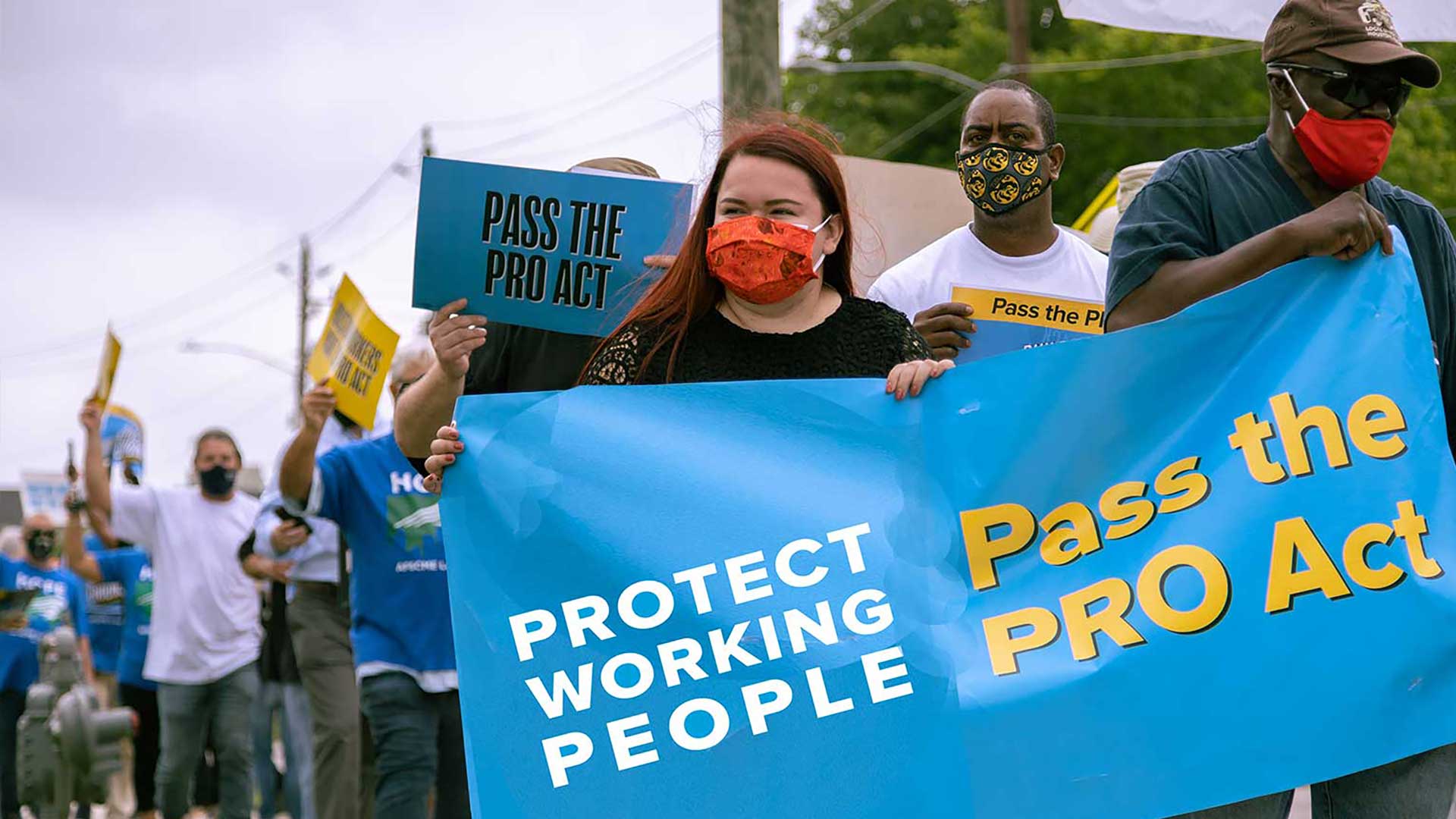
Working families deserve a Supreme Court justice who will respect the rights of working people and who will enforce decades of legal precedent that protect us in the workplace. On Monday night, President Donald Trump rejected working men and women by selecting Judge Brett Kavanaugh to fill the vacancy created by Justice Anthony Kennedy’s retirement.
After a thorough review of Kavanaugh’s record, we are deeply troubled by his selection. AFL-CIO President Richard Trumka said:
The current Supreme Court has shown that it will side with greedy corporations over working people whenever given the chance, and this nominee will only skew that further. Recent decisions by the court, often the result of 5-4 votes, have a dramatic impact on the lives of working families and reinforce the importance of the selection of a new justice. We simply cannot have another lifetime-appointed justice unleashed who, as Justice Elena Kagan wrote in her dissent in Janus v. AFSCME, Council 31, acts as a “black-robed ruler overriding citizens’ choices.”
Working people expect the Supreme Court to be the fairest and most independent branch of government in America. Any senator who believes Supreme Court justices should protect the rights of all Americans should reject this nomination and demand a nominee who will protect the rights of working people and uphold our constitutional values of liberty, equality and justice for all. Across the country, working people are organizing and taking collective action as we haven’t seen in years, and we won’t stand for any politician who supports justices who put our rights at risk.
The more we look at what Kavanaugh has done, the more it seems his nomination to the Supreme Court should be rejected. Kavanaugh routinely rules against working people and their families:
-
In American Federation of Government Employees, AFL-CIO v. Gates, a partial dissent argued that Kavanaugh’s majority opinion would allow the secretary of defense to abolish collective bargaining at the Department of Defense.
-
In Agri Processor Co. Inc. v. National Labor Relations Board, he argued that a company didn’t have to bargain with an employee union because the employees were ineligible to vote in the union’s election because they were undocumented immigrants.
-
In SeaWorld of Florida LLC v. Perez, he argued that a safety citation issued against SeaWorld after a killer whale killed a trainer was too paternalistic.
-
In Venetian Casino Resort LLC v. NLRB, he sided with a casino after an NLRB decision that the hotel engaged in unfair labor practices by requesting that police officers issue criminal citations against legal protesters.
Kavanaugh regularly sides with employers in denying working people relief against discrimination in the workplace:
-
In Miller v. Clinton, he argued that the U.S. State Department could fire an employee because he turned 65.
-
In Howard v. Office of the Chief Administrative Officer, he argued that a black woman couldn’t pursue a race discrimination suit after being fired as the deputy budget director at the U.S. House of Representatives, claiming that the firing was protected under the Speech or Debate Clause of the Constitution.
Kavanaugh rejects the right of employees to receive employer-provided health care:
-
In Seven-Sky v. Holder, he argued in a dissent that a president could declare the Affordable Care Act unconstitutional and not enforce it, despite it being passed by Congress.
Kavanaugh promotes overturning U.S. Supreme Court precedent:
-
He appears eager to overturn the well-established U.S. Supreme Court precedent of Chevron USA Inc. v. Natural Resources Defense Council Inc., which held that unelected judges must defer to executive agencies’ construction of a statute when Congress has given an agency primary responsibility for interpreting its mandates, so long as the agency does not act contrary to Congress’ clear intent.
-
In United States Telecom Association v. Federal Communications Commission, Kavanaugh argued that the court shouldn’t defer to executive agencies when it comes to what he thinks are “major rules.”
Kavanaugh regularly sides with the privileged, including corporations, over the less powerful:
-
He wrote two dissents contending that a large corporation, in these cases Exxon Mobil Corp., should not be held responsible for its overseas misconduct. After Indonesian villagers alleged they were tortured and killed by soldiers working for Exxon, Kavanaugh argued that allowing the villagers to sue Exxon would interfere with the U.S. government’s ability to conduct foreign relations.
-
In United States v. Anthem, he sided with the merger of insurance companies Anthem and Cigna, which would have reduced competition for consumers in 14 states. The majority criticized Kavanaugh’s application of “the law as he wishes it were, not as it currently is.”
The Washington Post once described Kavanaugh as “nothing more than a partisan shock trooper in a black robe waging an ideological battle against government regulation.” It’s deeply troubling that the president thinks such a description is the best fit for the Supreme Court.


